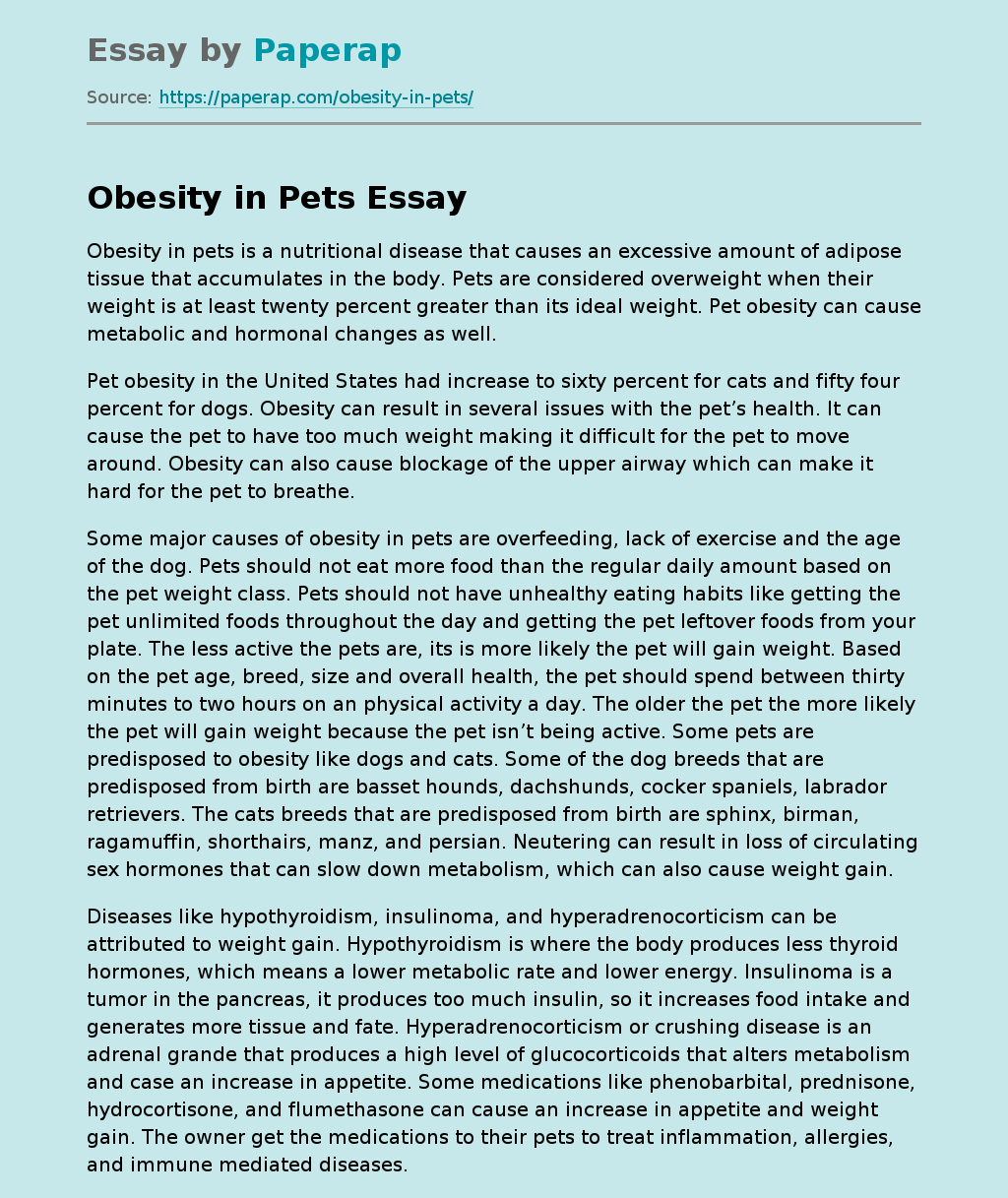Obesity in pets is a nutritional disease that causes an excessive amount of adipose tissue that accumulates in the body. Pets are considered overweight when their weight is at least twenty percent greater than its ideal weight. Pet obesity can cause metabolic and hormonal changes as well.
Pet obesity in the United States had increase to sixty percent for cats and fifty four percent for dogs. Obesity can result in several issues with the pet’s health. It can cause the pet to have too much weight making it difficult for the pet to move around.
Obesity can also cause blockage of the upper airway which can make it hard for the pet to breathe.
Some major causes of obesity in pets are overfeeding, lack of exercise and the age of the dog. Pets should not eat more food than the regular daily amount based on the pet weight class. Pets should not have unhealthy eating habits like getting the pet unlimited foods throughout the day and getting the pet leftover foods from your plate.
The less active the pets are, its is more likely the pet will gain weight. Based on the pet age, breed, size and overall health, the pet should spend between thirty minutes to two hours on an physical activity a day. The older the pet the more likely the pet will gain weight because the pet isn’t being active. Some pets are predisposed to obesity like dogs and cats. Some of the dog breeds that are predisposed from birth are basset hounds, dachshunds, cocker spaniels, labrador retrievers.
The cats breeds that are predisposed from birth are sphinx, birman, ragamuffin, shorthairs, manz, and persian. Neutering can result in loss of circulating sex hormones that can slow down metabolism, which can also cause weight gain.
Diseases like hypothyroidism, insulinoma, and hyperadrenocorticism can be attributed to weight gain. Hypothyroidism is where the body produces less thyroid hormones, which means a lower metabolic rate and lower energy. Insulinoma is a tumor in the pancreas, it produces too much insulin, so it increases food intake and generates more tissue and fate. Hyperadrenocorticism or crushing disease is an adrenal grande that produces a high level of glucocorticoids that alters metabolism and case an increase in appetite. Some medications like phenobarbital, prednisone, hydrocortisone, and flumethasone can cause an increase in appetite and weight gain. The owner get the medications to their pets to treat inflammation, allergies, and immune mediated diseases.
Obesity in Pets. (2021, Nov 16). Retrieved from https://paperap.com/obesity-in-pets/

